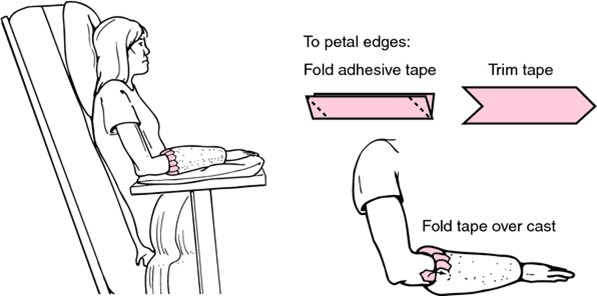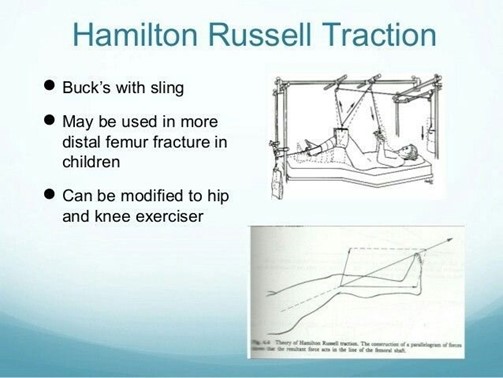A client who has a lower-leg cast reports skin irritation around the upper edge of the cast. Which of the following actions should the nurse take?
Suggest that the client use a blunt object such as a comb to relieve the itch.
Petal the edges of the cast.
Tell the client to apply lotion to the irritated skin.
Bivalve the cast.
The Correct Answer is B
If a client reports skin irritation around the upper edge of a lower-leg cast, the nurse should petal the edges of the cast. This involves applying adhesive strips or moleskin around the edges of the cast to smooth them out and prevent them from rubbing against the skin.
a. Suggesting that the client use a blunt object such as a comb to relieve the itch is not recommended as it can cause further irritation or damage to the skin.
c. Telling the client to apply lotion to the irritated skin is not recommended as it can cause further irritation or damage to the skin and may also damage the cast.
d. Bivalving the cast is not necessary for skin irritation around the upper edge of the cast. Bivalving involves cutting the cast in half to relieve pressure and is typically only done in cases of severe swelling or compartment syndrome.

Nursing Test Bank
Naxlex Comprehensive Predictor Exams
Related Questions
Correct Answer is A
Explanation
The correct answer is choice A: Toes cool to touch.
Choice A rationale: When a cast is too tight, it can compromise blood circulation to the extremity. This results in decreased blood flow and reduced oxygenation, causing the toes to feel cool to the touch.
Choice B rationale: Inability to move toes is a significant concern that can also indicate nerve compression due to a tight cast. However, it may not be the first sign of a tight cast, as impaired blood circulation will likely be evident before nerve damage.
Choice C rationale: Pallor of the toes, or a pale appearance, can occur when there is restricted blood flow. However, the coolness of the toes is often noticeable before pallor develops.
Choice D rationale: Edema of the toes, or swelling, can occur due to a tight cast, but it is usually a later sign. Initially, the toes may feel cool to the touch, followed by other symptoms such as pallor, pain, and eventually, swelling.
Correct Answer is A
Explanation
The nurse should tell the newly licensed nurse that Russell's traction uses a sling under the knee to treat a fracture of the femur. Russell's traction is a type of skin traction that is used to immobilize and align a fractured femur. It involves placing a sling under the knee and applying weights to the affected leg to provide continuous traction.
Russell's traction does not use a cervical halter, skeletal pins, or a pelvic girdle belt. A cervical halter is used to treat neck injuries. Skeletal pins are used in skeletal traction to stabilize fractures. A pelvic girdle belt is used to treat lower back pain.

Whether you are a student looking to ace your exams or a practicing nurse seeking to enhance your expertise , our nursing education contents will empower you with the confidence and competence to make a difference in the lives of patients and become a respected leader in the healthcare field.
Visit Naxlex, invest in your future and unlock endless possibilities with our unparalleled nursing education contents today
Report Wrong Answer on the Current Question
Do you disagree with the answer? If yes, what is your expected answer? Explain.
Kindly be descriptive with the issue you are facing.
